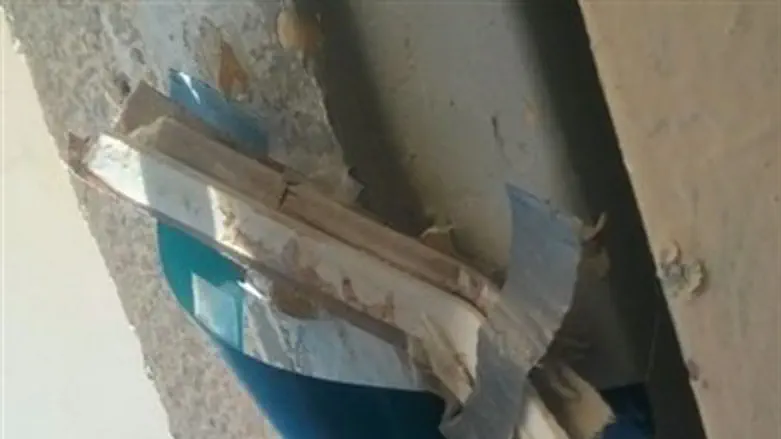
An IDF volunteer's investigation has found a severe shortage and widespread neglect in the IDF's mezuzahs – the parchments bearing the Shema prayer that are affixed to the doorframes in Jewish homes and buildings.
In many IDF structures, there are no mezuzahs on the doorposts, and in others, the mezuzahs are neglected and halachically invalid, or unkosher.
The problem is particularly common in the older outposts far from Israel's population centers, such as Nahal Oz, near Gaza, Karmei Tzur and Otniel in Judea, the Shechem Brigade HQ and the Tapuach Outpost near Shechem.
The man behind the investigation, Ze'ev Riterman, whose sons serve in the IDF and who volunteers on IDF bases, told Arutz Sheva that many religious soldiers have petitioned the elements in charge of religion on their bases, to no avail.
Many of the soldiers have had to ask for contributions in order to fund mezuzahs in their quarters.
A letter on the subject was sent to the Military Rabbinate nine months ago, but the matter has not been taken care of yet. The Chief Military Rabbi, Brigadier General Rafi Peretz, replied to the letter and said that the matter is being taken care of and that the IDF purchases about 6,000 mezuzahs annually.
However, a source in the Rabbinate said in a closed-door meeting that only 15% of the mezuzahs that are purchased are kosher and that the mezuzahs that are not yet in use are still in the process of being sorted.
Another source in the Rabbinate admitted that there he saw firsthand the severe shortage in mezuzahs in numerous IDF bases in the Gaza area, during Operation Protective Edge last summer.
The accompanying photos illustrate the sad state of military mezuzahs, including lack of mezuzahs, empty mezuzah cases, unkosher mezuzahs and mezuzahs that are not properly affixed to the doorpost.
The IDF Spokesman said in response: “The Military Rabbinate has been taking action to replenish what is lacking and to replace invalid mezuzahs. The rabbis of units in the field have been identifying places where mezuzahs are lacking or unkosher, and providing immediate solutions. Any specific problem should be passed on to the unit's rabbi or to the Rabbinate hotline.”
Photos: Ze'ev Riterman